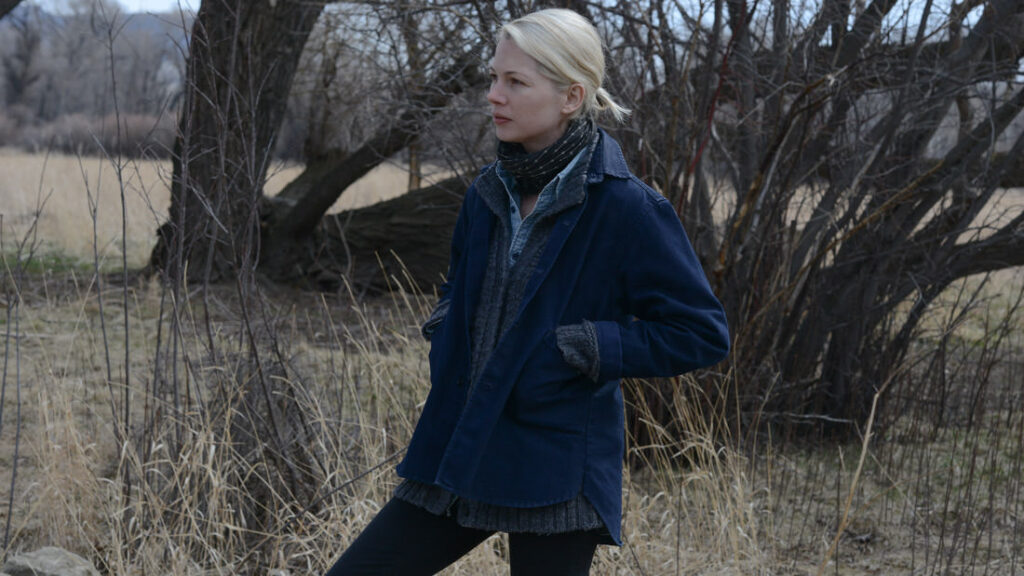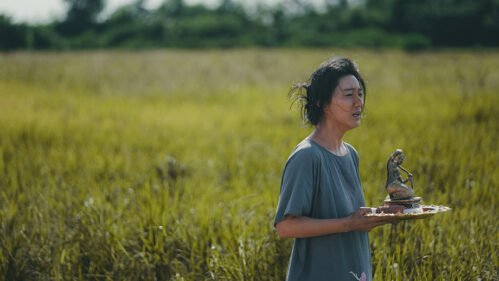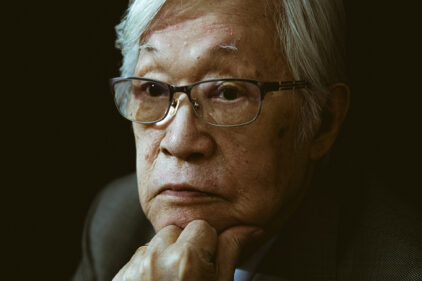Our three Sundance
correspondents were asked to name their five favorite films of this year’s
festival.
BRIAN TALLERICO: The
2016 Sundance Film Festival is over and the question of how it compares to past
iterations of Robert Redford’s landmark creation arises. Was it a good year? Yes. It wasn’t a great one,
but it was solid. One of the most encouraging elements of Sundance was how much
the festival pushed back against the white male dominance in the industry,
offering films from minorities and female directors that earned buzz around
Park City. From Nate Parker’s record-breaking sale for “The Birth of a Nation”
to Kelly Reichardt’s stunning “Certain Women,” the film scene at Sundance this
year felt like it reflected the diversity that the Oscars did not. It was also
a strong year for Sundance docs, several of which would land just below my top five:
“Life, Animated,” “Jim: The James Foley Story,” and “Lo and Behold: Reveries of the Connected World.” And I have to say how much I loved “Sing Street.” After
my #1, my #2-6 are very interchangeable. See “Sing Street.” You’ll love it. My
top five, alphabetically:
“Certain Women”:
I loved the “First Hundred Feet, Last Hundred Feet” look at
Kelly Reichardt’s career provided by restoring her 1995 debut “River of Grass”
for the Collection program and debuting her most star-studded film to date in
the Premieres section at the same time. It allowed one to consider how
Reichardt has developed into one of our most essential filmmakers. And I loved
how much Reichardt stands by her artistic approach with her new film, not
discarding the deliberate, slow pacing to appease a wider audience. Her work
with actors has always been impressive but the entire ensemble here registers,
especially Laura Dern, Jared Harris, Lily Gladstone and Kristen Stewart. It’s
too purposefully thin on narrative to appeal to everyone but it’s so rich with
character and setting that it’s stuck with me even though I’ve seen many films
since. My review of “Certain Women” here.
“The Eyes of My
Mother”:
The true discovery of the Next program this year was Nicolas
Pesce’s demented drama about psychosis that will play for those who like
twisted horror like Kim Ki-Duk or even David Lynch. Pesce’s film has a
dreamlike quality as we observe, always from a cinematic distance enhanced by
title cards reminding us it’s only a movie, a farmhouse of insanity. When a
young girl watches her mother get murdered by a maniac, it sets in motion a
sequence of events that sends us down a rabbit hole of dementia. Pesce’s eye
for composition is stunning and the sound design here haunts me more than a
week later. “The Eyes of My Mother” is the announcement of a major new talent. My review of “The Eyes of My Mother” here.
“Kate Plays
Christine”:
Robert Greene’s hybrid documentary examines not only the
case of Christine Chubbock, a woman who shot herself on live television in
Sarasota in 1974, but so much more. It is not a mere retelling of events, but a
look at depression, suicide, gender roles, and the art of acting. Kate Lyn
Sheil allows us to see what it does to a person to look deep into the life of
someone so disturbed that they blew their brains out when they knew children
would be watching television. How does someone get to that point? Could we ever
possibly know and ever possibly convey that level of depression via film? It’s
a daring, fascinating conversation piece that transcends mere historical doc to
get at why these horrific events happen and why we’re so fascinated with them. My review of “Kate Plays Christine” here.
“Manchester by the
Sea”:
This year’s best film at Sundance is a masterful study of
grief and compassion. How do we process the unimaginable and continue being
there for those who need us? Casey Affleck’s breathtaking performance, the best
of his career, captures a man whose entire being has been shattered by loss,
but he’s forced to respond to a new tragedy when his brother (Kyle Chandler)
dies and he has to care for his nephew (Lucas Hedges). Lonergan’s script is a
delicate balance of emotion and realism, and he directs every one of his actors
to stunning depths. There’s a scene near the end between Affleck and Michelle
Williams that can make me cry if I think about it for too long. It’s a master
class in writing, direction and acting. This is the film of Sundance 2016 that
will resonate for the rest of the year, and decades to come. My review of “Manchester by the Sea” here.
“Swiss Army Man”:
What a gloriously bizarre, beautiful movie. Rumored to be
the strangest movie to ever premiere at Sundance, the Daniels’ dramedy is
honestly like nothing you’ve ever seen before. Paul Dano and Daniel Radcliffe
shine as the most unexpected buddy comedy duo of the year. Dano plays a man
stranded on a deserted island; Radcliffe plays the corpse who washes on to the
beach, farting so much that Dano can ride him like a jet ski to another shore. And
it gets weirder from there. Perfectly edited and shot, “Swiss Army Man” is a
gorgeous film to look at, once you get past the fact that it’s mostly about
farting. In all seriousness, the Daniels use their “goofy” concept to comment
on individuality, loneliness and what it really means to be alive. My review of “Swiss Army Man” here.

MONICA CASTILLO: Don’t
tell my family, but going to Sundance has become my new “we’re going to Disney
World.” I usually can’t sleep the night before, I get up early on most days to
beat the crowds, and nothing about the overpriced food and long lines ever
quite wipes the smile off my face. I can’t say I’ve ever spent that many days
and long nights in any one theme park, but I now have a place to see many of my
friends from different parts of the country in one fabulous festival. Readers
may only know Sundance as the place that movie careers are made or broken, but
I can’t think of the festival without remembering how we fit four critics into
a studio apartment, trekked up the oxygen-poor Main Street for parties, or keeping
a friend’s annual tradition to catch up over a steak dinner.
I’ve never grown tired of the rush before a festival. Like
the seconds before the roller coaster goes over its first hill, there’s a
moment of calm and anticipation before the storm. I hope I never lose that
excitement.
Of the 28 movies I saw between interviews and events, here
are my five favorites:
1. “Manchester by the
Sea” – Perhaps the most tragic movie at Sundance (and that’s saying
something), Kenneth Lonergan’s hauntingly beautiful “Manchester by the Sea” follows
Lee Chandler (Casey Affleck) as he and his family cope with the untimely death
of his brother. Told in fragments of memories, the movie reveals past loss and
heartaches that lead up to the tragic present. Slowly but surely, your
perception of relationships and characters change with each reveal.
“Manchester” isn’t interested in making its audience feel better but would
rather like to explore the various stages of coping. From the scenes of pained
emotional outbursts to the wind-whipped talks along the coast, “Manchester by the
Sea” is an achingly gorgeous movie about life after loss. Read Brian’s review of “Manchester by the Sea” here.
2. “The Birth of a
Nation” – Co-opting the name of one of the most infamously racist movies in
film history and making it about a controversial figure who lead a slave
rebellion, first-time director and star Nate Parker certainly set out to get
our attention. He found it at Sundance, taking social media by storm and Fox
Searchlight to the bank at a tune of $17.5 million, the largest sum paid for a
film at the festival. It’s not perfect, but the film’s passion and purpose are
evident in every frame. As Nat Turner, Parker created a new narrative in
Hollywood, a hero’s journey for a man who led a killing spree of white slave
owners. The film soars in the latter half as the preacher-turned-rebel questions
his uprising and choices. But as the camera backs away from Turner and onto the
faces of black onlookers on the edges of an angry white mob, we know the movie
is not just about one man. It’s the story of our nation. Read Brian’s review of “Birth of a Nation” here.
3. “Sonita” –
While other documentaries pushed the boundaries of what makes its genre, this
film poses the human question of if you could save the life of your movie’s
subject, would you? It was perhaps not the movie Rokhsareh Ghaem Maghami set
out to make when she began following Afghani refugee turned rapper Sonita. But
when Sonita’s mom insists on selling her to an early marriage, Sonita makes a
big-eyed plea for her director to save her. Even after Maghami says she can’t,
she then enters the frame of the movie to try and save Sonita from losing her
childhood and her budding rap career. It’s a big-hearted movie that subtly
questions the role of what it means to be a documentary filmmaker much more
than many of the more experimental fare at the festival. Read Nick’s review of “Sonita” here.
4. “Spa Night” –
There are not enough movies made about first generation Americans, and
miraculously, here’s a great one at Sundance. “Spa Night” perfectly
encapsulates the uncomfortable pressure of straddling two cultures and the
insecurity that comes with falling out of your immigrant parents’ expectations.
David (Joe Seo) tries desperately to appease his parents and finds work at a
Korean spa to help support them. However the gig is more than just a means to
pay bills; it’s in the steamy saunas and open showers that David realizes he
likes men. Director Andrew Ahn utilizes the set of a bath house turned gay
hook-up hot spot to its fullest effect, and the film feels steamy but kind of
uneasy with itself. Unafraid to show Koreatown and its neighbors, “Spa Night”
may be the most authentically L.A. story to grace the screen in recent memory. Read Nick’s review of “Spa Night” here.
5. “White Girl” –
Brash, bold, and unapologetic, this raw coming of age story also doubles as an
indictment of white privilege. Enter Leah (Morgan Saylor), an entitled,
drug-addled college student who falls in love with her friendly Queens
neighborhood dealer, Blue (Brian ‘Sene’ Marc). After he’s busted and sent to
jail, Leah tries to save him and finds the double standard of the justice
system, abusive power dynamics, and the harsh realities of growing up. Director
Elizabeth Wood culled the story from her own personal experiences, giving the
movie a lived-in feel. Leah is like an antihero we’re meant to be annoyed with
but ultimately want to succeed. We don’t give girls behaving badly enough
credit for making movies interesting. Now’s our chance. Read Brian’s review of “White Girl” here.

NICK ALLEN: One of the biggest and best reasons
to attend Sundance is to get a leg-up on what the upcoming film year overall is
going to feel like. As titles trickle out from Park City and appear in
theaters/VOD throughout the year (or even in 2017), the Sundance effect
provides a clearer sense of what will shape the total indie movie scene. This
includes what talents are going to be the focus of discussion, or what movies
are going to create cult followers in Chicago just like they did at world
premieres in Park City. With Sundance time in your back pocket, no longer does
the rest of the movie year seem like a bunch of release dates, but a slow
extension of the festival with a heavenly amount of more sleep. Nonetheless, if
my own Sundance experience of checking out about 30 new films was any
indication of what’s to come, it’s going to be a great year.
Here are the five best films I saw at
Sundance, or, the best I’ve seen so far in 2016:
1. “Manchester by the Sea” – It is not an exaggeration to say this film
kind of broke Sundance 2016 for me. Not that all films suffered in the wake of
its masterful touch, but that it provided a clear beacon towards the potential
of storytelling, albeit with a pitch that sounds extremely Sundance—a man
returns home during a family tragedy to ultimately face himself (“Other
People,” “The Hollars”). But from the very first shot of the
film, following behind a boat as it calmly glides on the water, there is a
confident breath and beauty to this story very rarely seen in other films programmed
by the festival. That special feeling only continues for the rest of the film,
which takes its own huge leaps later on with its story of grief by showing very
little character change at all. The film is also very funny, absolutely
gorgeous and completely assured of itself, a professional in a sea of movies
that sometimes (rightfully so) are at first like calling cards. Boasting
sequences better than entire movies that I saw at the fest, “Manchester by
the Sea” devastated me in more ways than one. My interview with writer/director Kenneth Lonergan here.
2.
“Southside with You” – The
other emotional experience I was not expecting to have at Sundance came from
“Southside with You.” Days after seeing it, I still can’t believe
that it exists, or that it works so thoughtfully from an initial
novelty-sounding pitch. This walk-and-talk story about the first date between
Barack Obama and Michelle Robinson has an endless charm through exploration of
their lives and significances, long before they were married and living in the
White House. And for film too, along with the aspect of providing a different
voice to the usual walk-and-talk film, “Southside with You” is a big
moment for biography films. It shows that true stories can be told without huge
budgets, or big name-drops. If the script and performers can create something
that speaks to ideas bigger than the characters themselves, it might just work.
“Southside with You” has me hopeful that more films that walk, talk
and think like this will start to be made. My review of “Southside with You” here.
3.
“Wiener-Dog” – Like any
critic, I have my directors that particularly excite me, whose filmic
sensations I like to collect. I easily admit that Todd Solondz is one of my
favorites, which was only proven to me again by “Wiener-Dog,” one of
the most challenging films I saw at the fest. With its story of a dog moving in
and out of people’s lives, it was both nothing what I expected it to be, and
yet of the exact Solondz signature—it showed how, even many titles down the
line, a filmmaker can have authorship, but still be abstract. Even though I saw
it seemingly 100 films ago at the festival, I refer back to contemplate
Solondz’s exact details–why certain characters ask the innocuous questions
they ask, or even wear certain colors—with reinstated trust about a master’s
touch. The cherry on top was Amazon’s acquisition of the film, which has me
hoping that the film will reach a wide audience albeit with Solondz’s
wonderfully banal log line. My review of “Wiener-Dog” here.
4.
“Sand Storm” – The women do
not have a say in the patriarchy horror show “Sand Storm,” nor do
they get to do much moving within the story. Writer/director Elite Zexer’s
script has a disturbing naturalism to it, especially as it shows a Bedouin
Village in Southern Israel enacting centuries-old gender roles in modern times.
The sum of beautiful performances, dialogue and cinematography (“Sand
Storm” even boasts a fantastic shot of a character waiting for the bus),
Zexer’s filmmaking has an immediacy about an injustice that reduces even the
men to unnatural roles. As popular as this subject may be for films (and it
should stay popular), “Sand Storm” is one of the best I’ve seen about
these issues, a full-fledged, mad-as-hell condemnation of the unfunny joke that
is patriarchy. It was one of the first movies I saw seemingly eons ago when
preparing for my Sundance 2016 coverage, and its profound anger has still not
worn off. My review of “Sand Storm” here.
5.
“Spa Night” – I have seen
and cared for characters who have gone through similar situations like in
Andrew Ahn’s in “Spa Night,” but have rarely felt so immediately like
I could possibly contextualize or understand a bit of their experience. This
story about a first-generation Korean-American family and their sexually-muted
son comes from a personal place, with a fantastic pride about the specific experiences
and passages it wants to show audiences. Through beautiful storytelling, these
life experiences feel universal, its tragedy further devastating as “Spa
Night” brings viewers into someone else’s world. My review of “Spa Night” here.











